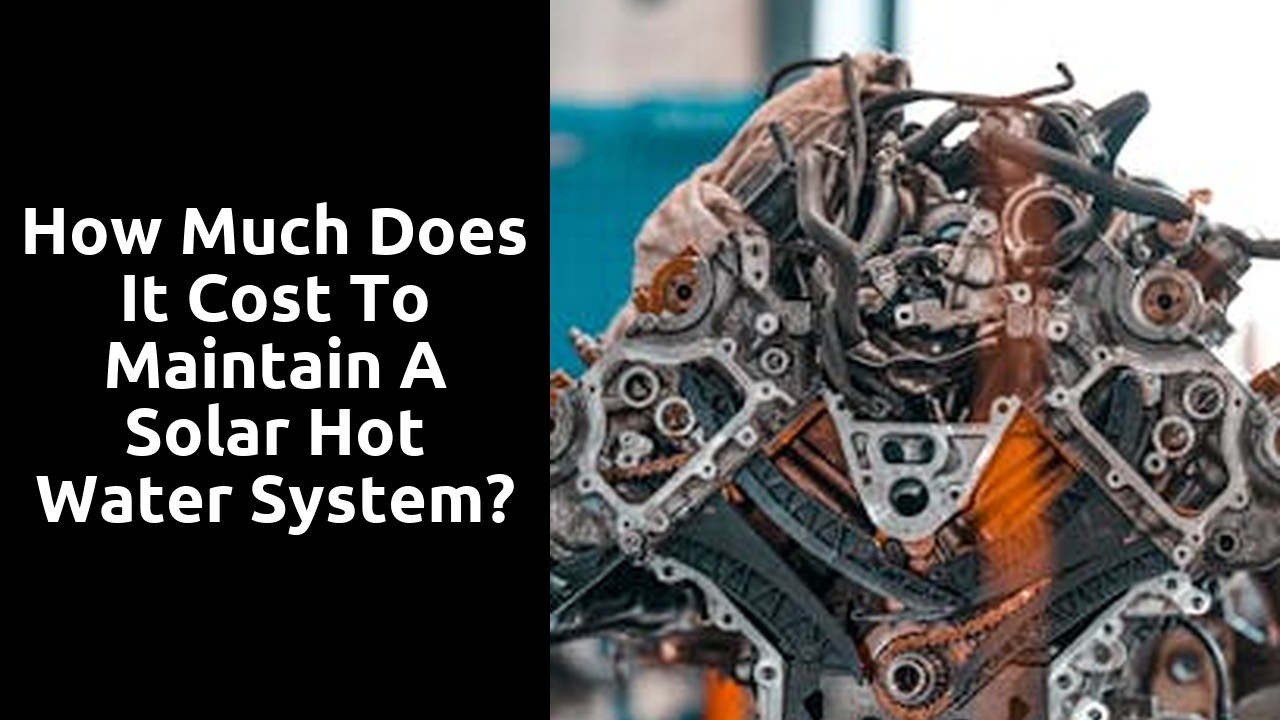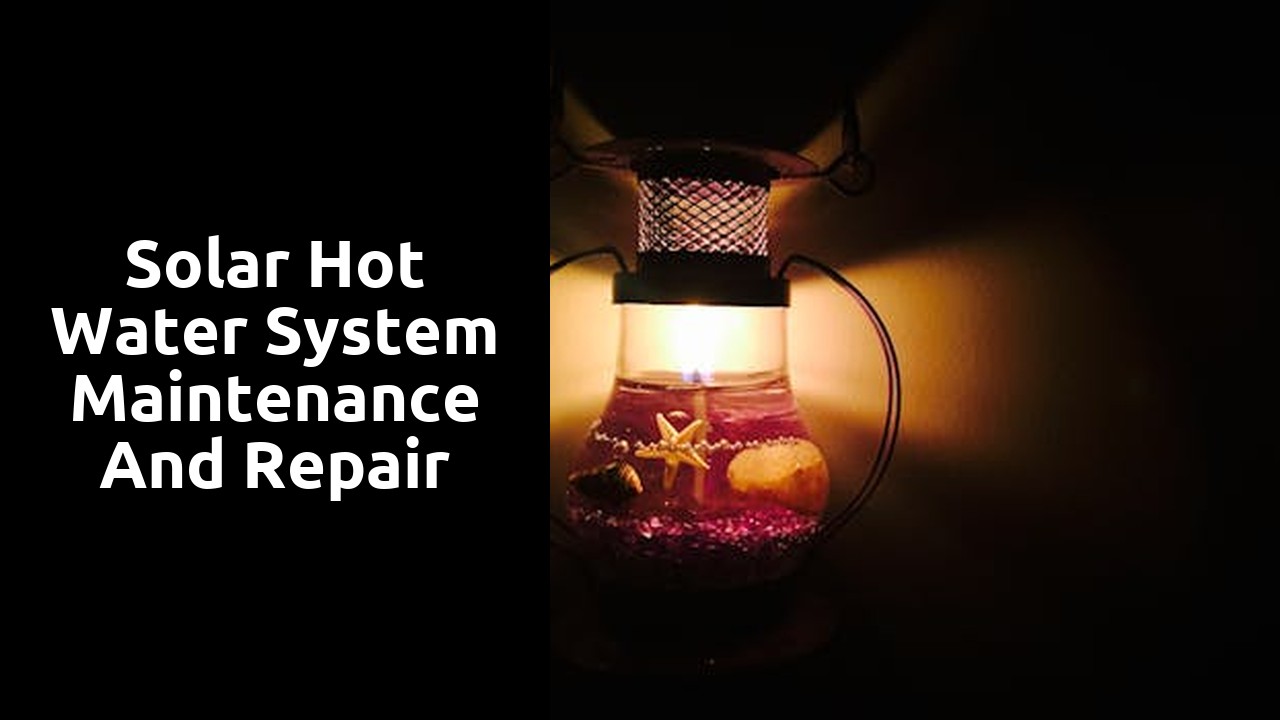
Government Rebates and Incentives
Government rebates and incentives play a crucial role in offsetting the costs associated with Solar Hot Water System Maintenance and Repair in Australia. These financial assistance programs aim to encourage the adoption of sustainable energy solutions by providing homeowners with rebates and incentives when they invest in solar hot water systems. By taking advantage of these initiatives, homeowners can significantly reduce the upfront costs of installing and maintaining a solar hot water system, making it a more affordable and sustainable option in the long run.
The availability of government rebates and incentives varies depending on the state or territory where the solar hot water system is installed. It is essential for homeowners to research and understand the specific rebate schemes and financial assistance programs that they may be eligible for. By leveraging these opportunities, homeowners can not only contribute to reducing their carbon footprint but also save money on Solar Hot Water System Maintenance and Repair expenses over time.
Financial Assistance Available for Solar Hot Water System Maintenance
Financial assistance is available for Australians who want to maintain their solar hot water systems. These programs aim to support homeowners in keeping their systems running efficiently and reducing the overall cost of Solar Hot Water System Maintenance and Repair. By taking advantage of these financial incentives, households can ensure that their systems are well-maintained and functioning optimally, leading to long-term savings and environmental benefits.
Rebates and grants are provided by both the federal and state governments to encourage the upkeep of solar hot water systems. These financial support mechanisms can help cover the expenses associated with Solar Hot Water System Maintenance and Repair, making it more affordable for homeowners to invest in sustainable water heating solutions. By accessing these funds, individuals can uphold the performance of their systems and extend their lifespan, thus maximising the benefits of renewable energy technology.
DIY Maintenance vs Professional Services
When it comes to Solar Hot Water System Maintenance and Repair, homeowners often find themselves deliberating between handling the tasks themselves or engaging professional services. Choosing the do-it-yourself route can provide a sense of accomplishment and potentially save money on service fees. Basic maintenance tasks like cleaning solar panels or checking for leaks can be manageable for those with some technical skills and knowledge.
On the other hand, opting for professional services for Solar Hot Water System Maintenance and Repair ensures that the work is done accurately and professionally. Experienced technicians have the necessary expertise to identify hidden issues, conduct thorough inspections, and offer tailored solutions. While professional services may come at a cost, the peace of mind and quality assurance they provide can outweigh the financial investment in the long run.
Pros and Cons of DIY Maintenance Compared to Hiring Professionals
Engaging in DIY maintenance tasks for solar hot water systems can offer a range of benefits to homeowners in terms of cost savings and a sense of accomplishment. Regularly checking the system for issues such as leaks or mineral buildup can help in the early detection of problems, potentially preventing larger and more expensive repairs down the track. DIY maintenance also grants homeowners the flexibility to schedule upkeep tasks at their convenience, allowing them to stay on top of the system's performance without having to wait for a professional technician.
On the flip side, hiring professionals for Solar Hot Water System Maintenance and Repair provides a level of expertise and precision that may be challenging to achieve through self-maintenance. Trained technicians have the knowledge and tools to conduct thorough inspections and address complex issues effectively. Additionally, relying on professionals can offer greater peace of mind to homeowners, knowing that their system is being serviced by experts who can identify and resolve potential problems with proficiency.
LongTerm Cost Savings
Opting for a solar hot water system can lead to significant long-term cost savings. While the initial installation cost might be higher compared to traditional water heating systems, the ongoing operational expenses are notably lower. Solar hot water systems typically require less maintenance and repair, translating to reduced expenditure over time. By regularly maintaining the system and promptly addressing any issues that arise, homeowners can ensure its optimal performance and longevity. This proactive approach can curb the need for extensive repairs and prolong the life of the solar hot water system.
Calculating the overall savings from using a solar hot water system involves factoring in various elements such as the initial investment, maintenance costs, energy savings, and potential government rebates or incentives. When considering the cumulative expenses of traditional water heaters, including utility bills and repair fees, the economic benefits of a solar hot water system become more apparent over the long term. By carefully monitoring the Solar Hot Water System Maintenance and Repair, homeowners can maximise efficiency and cost-effectiveness, ultimately realising considerable savings and environmental benefits in the years to come.
Calculating the Overall Savings from Using a Solar Hot Water System
When considering the overall savings from utilising a solar hot water system, it is essential to take into account both the upfront installation costs and the long-term benefits. While the initial investment may seem significant, the savings in energy bills over time can outweigh these costs. To accurately calculate the overall savings, one must factor in the reduction in electricity or gas bills due to the decreased reliance on traditional water heating methods. Additionally, considering the potential government rebates and incentives available for solar hot water systems can further contribute to cost savings. It is important to assess the total expenses associated with Solar Hot Water System Maintenance and Repair to determine the net savings gained from using a solar hot water system in the long run.
FAQS
What are the typical maintenance costs associated with a solar hot water system?
The maintenance costs for a solar hot water system can vary, but on average, you can expect to pay around $100 to $200 per year for professional servicing and inspections.
Are there any government rebates or incentives available to help offset the cost of maintaining a solar hot water system?
Yes, there are various government rebates and incentives available that can help reduce the overall cost of maintaining a solar hot water system. These incentives can vary depending on your location, so it is recommended to check with your local authorities or energy providers for specific details.
Is financial assistance available for maintaining a solar hot water system?
Yes, there are financial assistance programs offered by some government bodies or energy providers to help homeowners cover the costs of maintaining their solar hot water systems. These programs can include subsidies, grants, or low-interest loans.
What are the pros and cons of DIY maintenance compared to hiring professionals for a solar hot water system?
When it comes to DIY maintenance, the pros include potential cost savings and the satisfaction of doing it yourself. However, the cons may involve lack of expertise and voiding warranties. Hiring professionals, on the other hand, ensures proper maintenance but may come at a higher cost.
How can I calculate the long-term cost savings of using a solar hot water system?
To calculate the long-term cost savings, you need to consider factors such as the initial cost of the system, ongoing maintenance expenses, energy savings, and any rebates or incentives received. By comparing these costs to traditional water heating methods, you can determine the overall savings from using a solar hot water system."""
